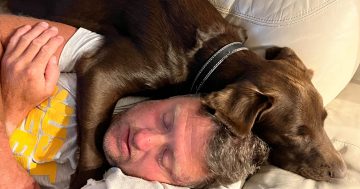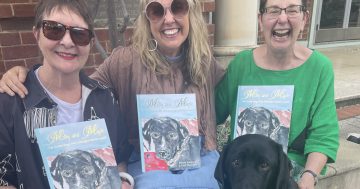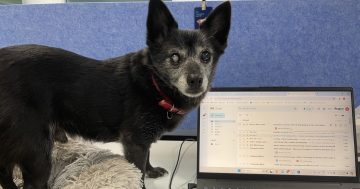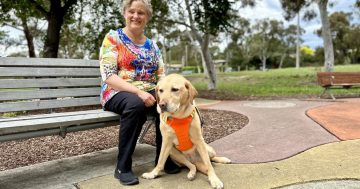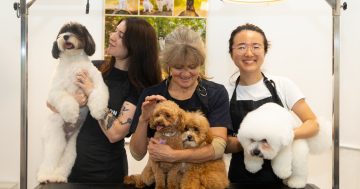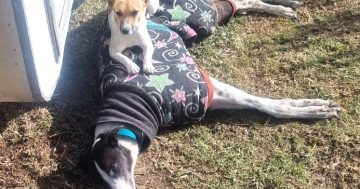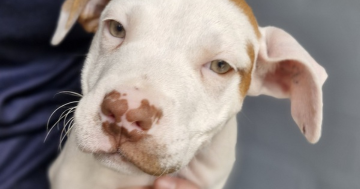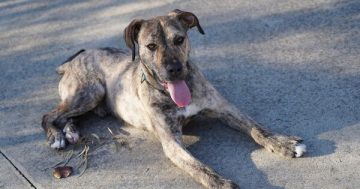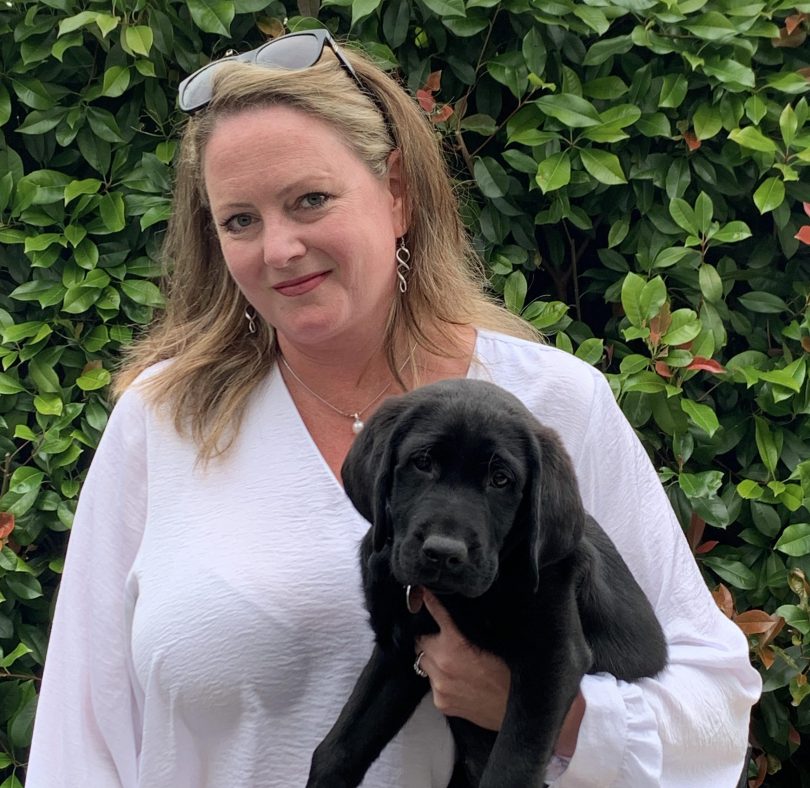
Canberra Guide Dogs puppy raiser Renee Hindson with Gypsy the guide-dog-in-training. Photo: Supplied.
Renee Hindson likens herself to a kindergarten teacher.
She meets her charges when they’re young, cute and eager to learn. When they leave her, they have learned enough to move on to the next steps in life. They’re a little bit older (and wiser) and, if it’s possible, even cuter.
Renee’s charges are Labrador puppies. But not just any Labrador puppies. For the first year of their life, she trains puppies that are destined to become guide dogs. Dogs that, in most cases, end up helping to give life back to humans.
“I teach them what they need to know,” she says.
As a guide dog puppy trainer, Renee reckons it’s all about giving back to the community.
“It was something I always wanted to do,” she said. “I first thought about it about 10 years ago, but I heard they weren’t doing it in Canberra then.”
At the time, Renee was diagnosed with brain cancer
“Then one day I was at Yerrabi Park and I saw them training guide dogs – I went straight online and applied. You don’t need previous training. They teach you everything you need to know.
“Because of the cancer, I was not working, so I was at home. But I try to do things with guide dogs; it just becomes a part of your life.
“In addition to the hour of training, you meet some great people. It gets you out of the house – it’s a nice community to be a part of.”
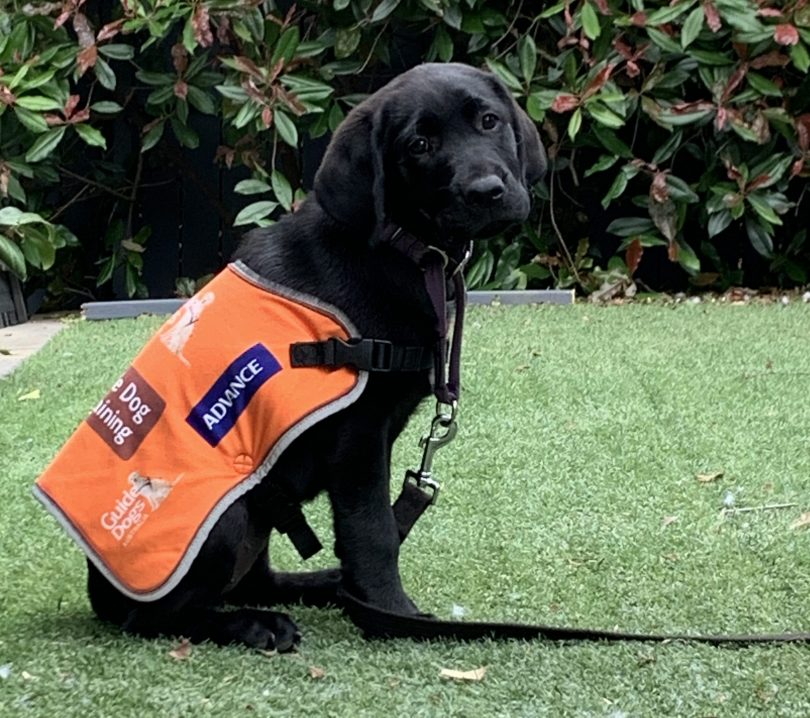
At 12 weeks old, Gypsy, the potential guide dog, starts training. Photo: Supplied.
Renee, from Franklin, is now working with her second puppy, Gypsy.
She says anyone can do the puppy raising. It simply involves an hour’s training once a week with a development officer in Canberra.
“It’s a little more than just teaching them to sit and stay,” she says. “As guide dogs, they need to learn close positioning with their human, learn not to be distracted by things like when someone drops food or to ignore other dogs when they’re working.”
One of the most important requisites for a puppy raiser is time.
“It’s not about leaving the puppy in the backyard alone all day. They can’t be left alone for more than four hours at a time. You need to be able to take them to work, or wherever you’re going – you can even take them to the pub. They need to experience what it’s like at the beach, for example, or in a high-rise apartment on a farm. It’s a matter of preparing them for the life they will be living.”
Puppy raisers get the pups at about eight weeks old and have them for about a year. Then they go to the Guide Dogs HQ in Sydney for assessment and then go onto full training, or are assessed as a therapy dog.
All the pups now come from the same breeding line of labradors.
The question everyone asks Renee is how hard is it to give the pup back at the end of the training year.
“That’s why I think of myself as their kindergarten teacher,” she said. “Once they’ve learned what they need to learn to make life better for someone, it’s time to go.
“Because the guide dogs are such a great community, you can always keep track of how they’re doing.” And visits by puppy raisers to their former charges are not rare.
More Guide dog puppy raisers are currently needed in Canberra. Apart from time and patience, puppy raisers need to be able to devote about 10 months to the program, including the weekly sessions, and they must also be socialised three to five times a week. But all equipment, food, training and other necessities are provided. Potential puppy raisers can also have another dog home, so long as it gets on with other dogs.
For more information, visit Guide Dogs NSW.












